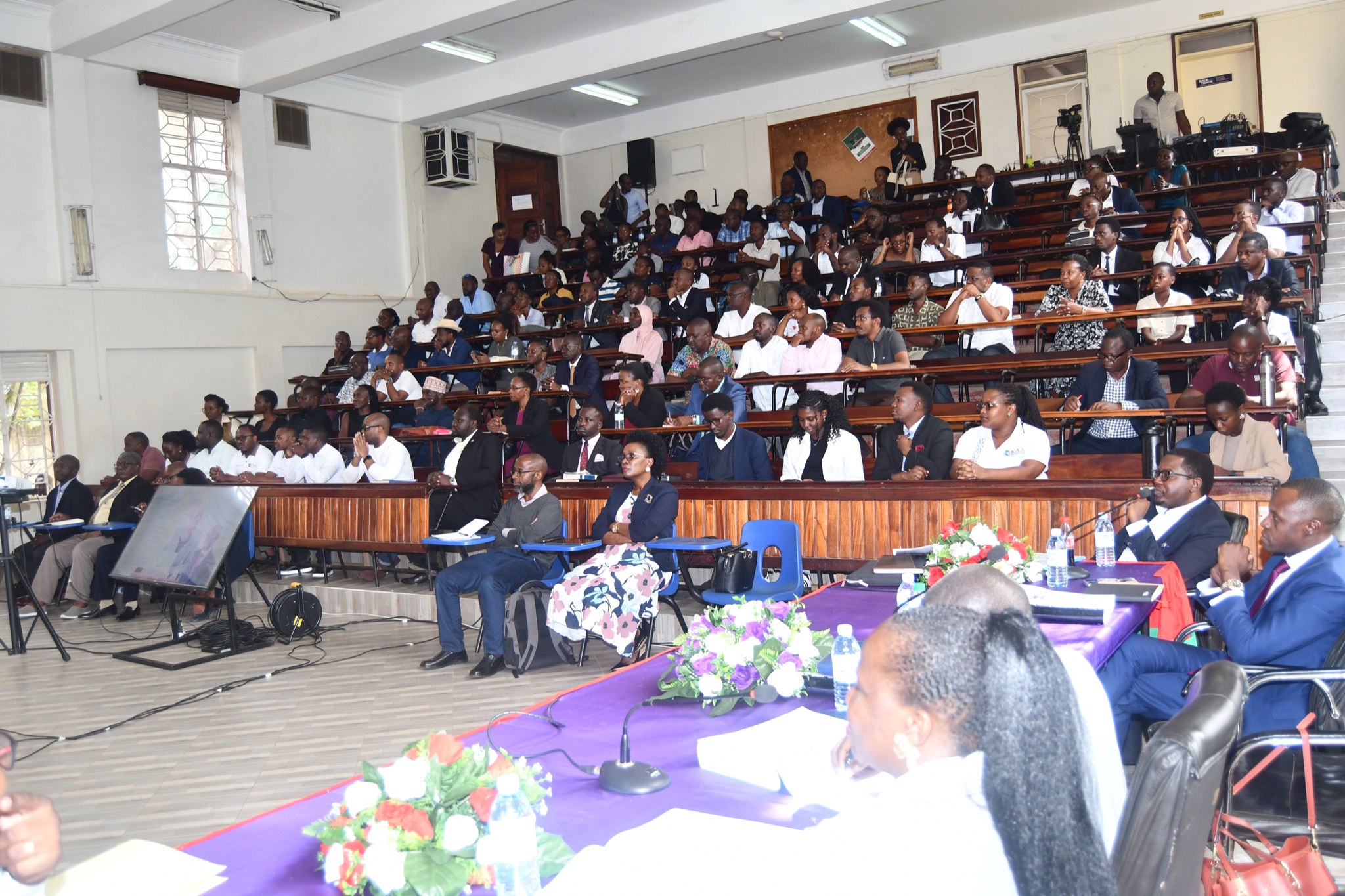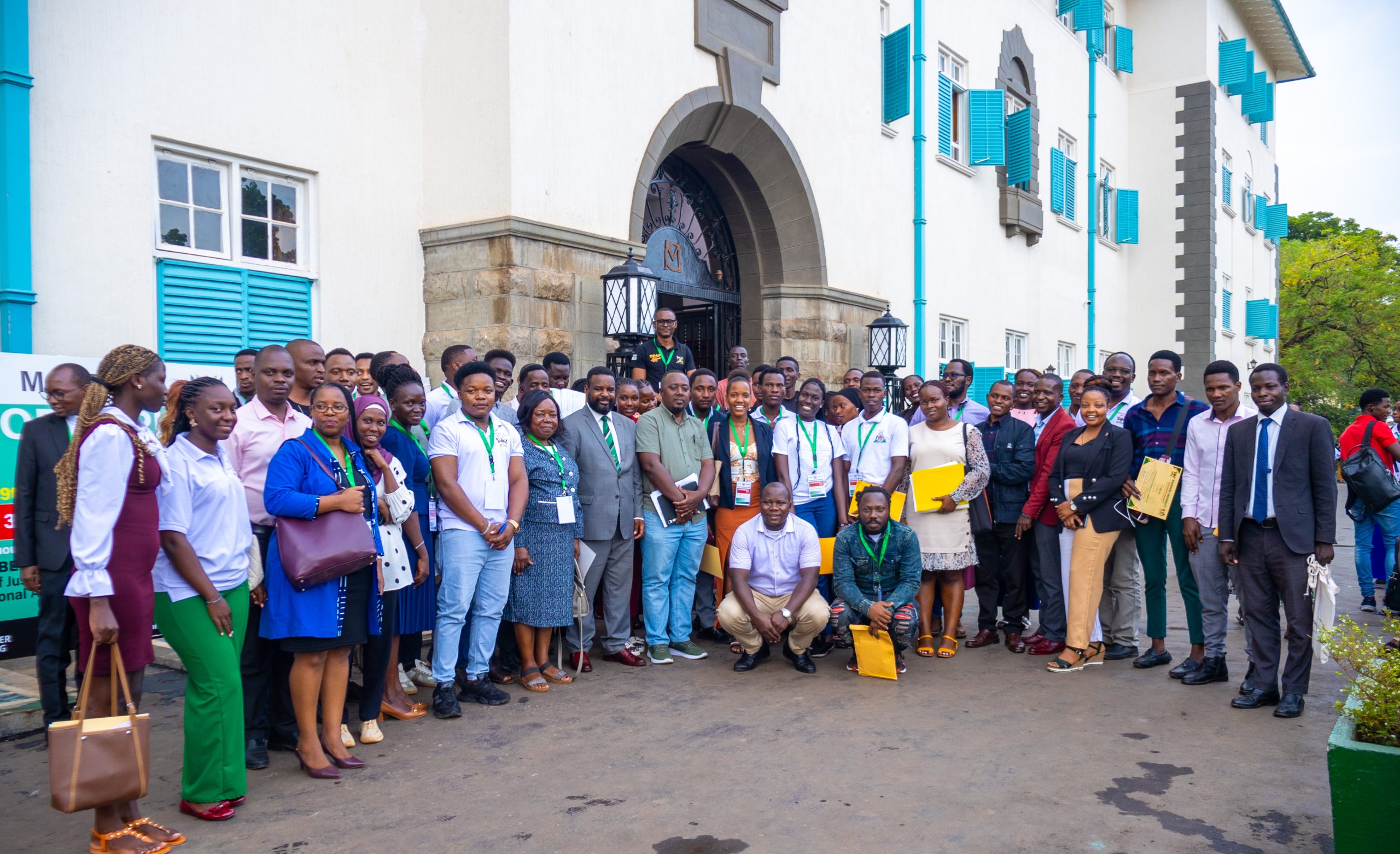Militarism And The Dilemma Of Post-Colonial Statehood
This is the title of the book that was launched Thursday 1st June 2017 at the School of Law. The Book authored by Law Dons, Dr. Busingye Kabumba, Dan Ngabirano and Timothy Kyepa explores the History of Militarism and the attitude that views the Military as a solution for all problems whether social, cultural or political.
Dr. Kabumba Busingye one of the authors in his remarks at the launch said the military is given a prime place and therefore gags all other areas and tends to address all problems whether historical or social.He attributes this to the historical foundation of the state in Uganda citing the fact that it was created through military force, and that force has to be used to keep it together. He said the use of Museveni in the title is not necessarily an indictment but a description of Uganda as it is today.
Kabumba illustrated a number of past political conflicts like the one in 1958 before independence, the one in 1966 to the present time saying that such conflicts were bound to happen because of the trend since 1962 that implies that ‘the strongest will govern’
While addressing himself on the so what question, Dr. Kabumba said the effect of this is that there has been a suppression of all forms of contestations that are natural in state formation. He said the continuous repetition of our history are not accidental but emphasize the fundamental problem that the book seeks to explore. He mentioned that even in the event of change of Government, the exit of one person would not change anything but could even make the situation worse.
He said the three of them a authors put their minds together to generate discussion on the dilemma as to whether there is any way this militarism can be dealt with before it burns all of us.
Dr. Paul Omach from the Political Science Department while giving a commentary of the work said the book is a reflection of the present times with the evidence of the manifestation of state power as seen in the police and the military. He said the book is well researched and useful to the social sciences and humanities and is a deviation from the other works that have written about the Ugandan history but beginning from the 1986 when the NRM came to power, with the writers going back to the time of nation building and building a legitimate political system. “When there is no legitimate state, contestations are inevitable by religious or political groups’ he noted. He said the issue at hand is indeed a dilemma and that we needed solutions out of it.
He pointed out that today the young people are taught to become crime preventers instead of becoming community mobilisers or farmers with the sole purpose of frustrating agitators for change. This is a sign of regime consolidation by the powers that be. He however expressed optimism that since democracy is a process, some effort is evident that with such discussions there is hope that with time some solutions would be found in building a better state.
Mr. Richard Mugisha from Open Society Initiative East Africa pointed out that the organization supported the production of the book because of the realization that there is indeed a dilemma that the various regimes that have managed the country have not addressed. He said the nation was created by force and that this has been maintained because many of the leaders do not know how to address it.
‘When you hear that Museveni is a benevolent dictator it means that he rules by force but allows us to speak’ he said of the present situation. He said militarism has blocked fundamental freedoms like speech, organizing and mobilization, thereby blocking any meaningful change in the structure of Uganda and has thence kept Uganda pegged to an exploitative way as evidenced by the military getting involved in all affairs.
The book launch was witnessed by a number of members of the legal fraternity that included the Ag. Principal School of LAW Dr. Damalie NaggitaMusoke, Prof. D.J Bakibinga, Dr. ZaharaNampewo, Dr. Margaret Sekajja, Dr. Maria Nassali among others



